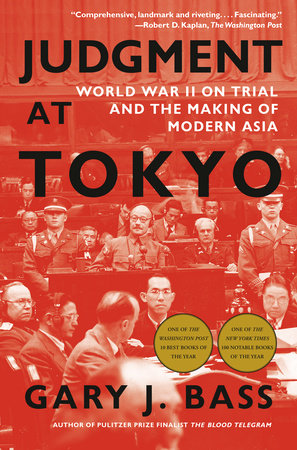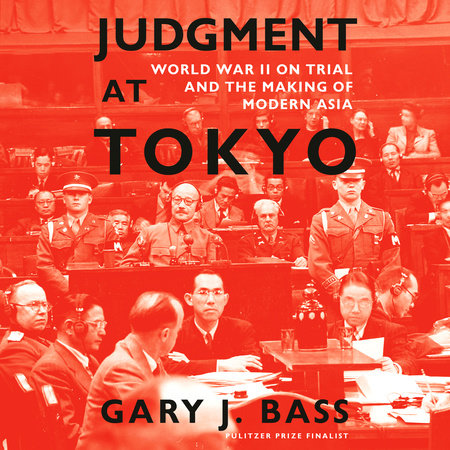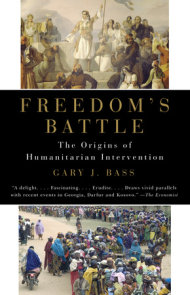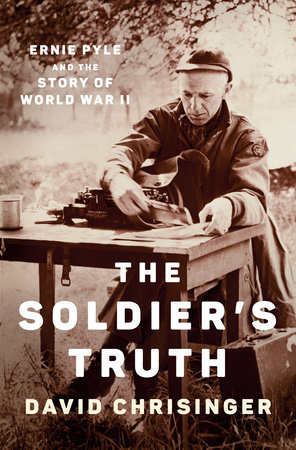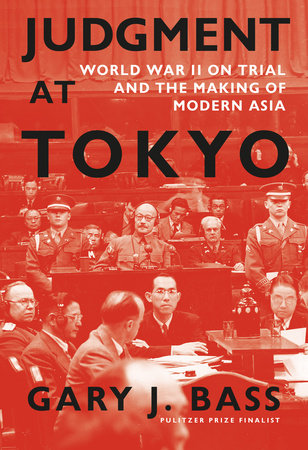

Judgment at Tokyo
By Gary J. Bass
By Gary J. Bass
By Gary J. Bass
By Gary J. Bass
By Gary J. Bass
Read by Simon Vance
By Gary J. Bass
Read by Simon Vance
Category: Asian World History | World War II Military History
Category: Asian World History | World War II Military History
Category: Asian World History | World War II Military History | Audiobooks

-
$46.00
Oct 17, 2023 | ISBN 9781101947104
-
Oct 17, 2023 | ISBN 9781101947111
-
Oct 17, 2023 | ISBN 9780593907900
1884 Minutes
Buy the Audiobook Download:
YOU MAY ALSO LIKE

Revolutionary Spring

On Great Fields
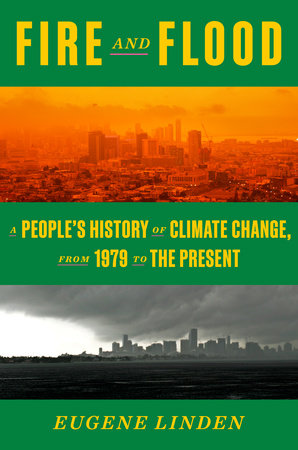
Fire and Flood
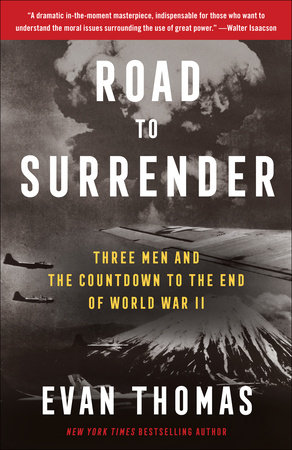
Road to Surrender
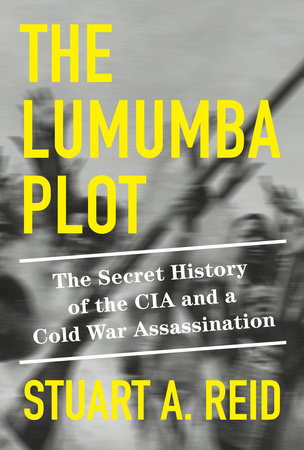
The Lumumba Plot
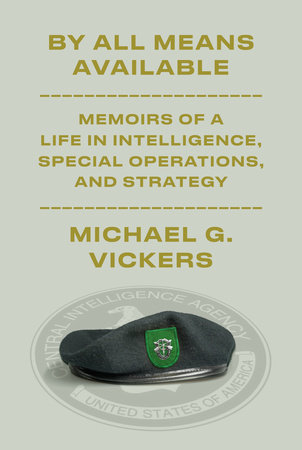
By All Means Available

Gallop Toward the Sun

The Catcher Was a Spy
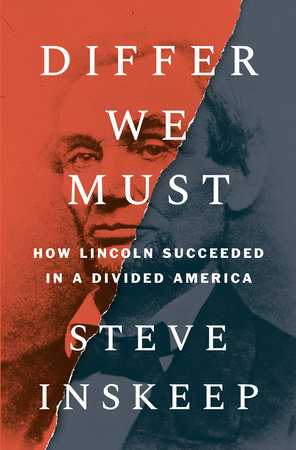
Differ We Must
Praise
THE NEW YORK TIMES NONFICTION BOOKS TO READ THIS FALL • THE WASHINGTON POST BOOKS TO READ THIS FALL • FINANCIAL TIMES WHAT TO READ THIS YEAR • NPR BOOKS WE LOVE
“Comprehensive, landmark and riveting. . . . Bass employs the complexities of the trial as a fulcrum to sketch a wide canvas. . . . Fascinating.”
—Robert D. Kaplan, The Washington Post
“A magisterial history. . . . A grand account. . . . Bass . . . has done a great service by spending a decade researching and writing what will surely be the definitive history . . . . Authoritative. . . . Few studies will be so balanced. . . . The book is a well-crafted, warts-and-all account from which almost no one emerges unscathed.”
—Bill Emmott, Financial Times
“Exhaustive and fascinating. . . . Placing the trial firmly in the context of colonialism, racial attitudes, the Cold War, and post-colonial Asian politics, Bass argues, quite rightly, that the trial ‘reveals some of the reasons why a liberal international order has not emerged in Asia.’ . . . Bass is right to keep returning to the question of race.”
—Ian Buruma, The New Yorker
“The word ‘monumental’ is used by reviewers rather too often, but in this case it is entirely deserved. . . . Outstanding and detailed. . . . Compelling and deeply humane. . . . Shows prodigious research, with documents mined in a range of languages, including Chinese and Japanese, as well as interviews with the children and grandchildren of several of the justices. The book is also written in flowing prose that describes characters as well as processes, and illuminates the links between both. . . . One of the most powerful elements of Bass’s book is his determination to . . . make the story an Asian one.”
—Rana Mitter, Times Literary Supplement
“Magnificent. . . . Profound. . . . Judgment at Tokyo encourages a deeper understanding of the Asian experience. . . . Bass has deeply studied the intersection of human rights ideals and politics; a past life in journalism . . . brings clarity and sparkle to his text. Judgment at Tokyo is written with the gravity the topic deserves, yet with winks of wit. . . . Vivid. . . . His contribution extends far beyond Tokyo in the 1940s, shedding light on an enduring debate.”
—Jennifer Lind, Foreign Affairs
“Every so often, a new work emerges of such immense scholarship and weight that it really does add a significant difference to our understanding of the Second World War and its consequences. Judgement at Tokyo is one such, a monumental work in both scale and detail, beautifully constructed and written, leaving the reader not only moved but disturbed . . . . A landmark work—capacious, intelligent and fair. . . . Fascinating and creditably even-handed. . . . Bass proves their significance every bit as forensically as the best courtroom lawyer. . . . Political leaders and military commanders around the world should read this book—and, with a bit of good sense, hurriedly learn the cautionary lessons it holds.”
—James Holland, The Telegraph
“A meticulously researched and authoritative account. . . . Mr Bass’s assertion that the tribunal’s failure played an important and largely negative role in the making of modern Asia is true.”
—The Economist, Best Books of the Year
“Powerful. . . . Judgment at Tokyo is meticulously researched, and Mr. Bass tells the story in crisp and compelling fashion. . . . Mr. Bass crosscuts neatly between the tribunal and the events leading up to it. . . . The book also carries relevance for the current moment.”
—Tom Nagorski, The Wall Street Journal
“[A] massive, magisterial work. . . . Bass has written an important book.”
—Max Hastings, The Sunday Times
“Bass has written a massively long and detailed book, always lively and judgmental. He brings out not only the legal arguments, but the colour of the great tribunal itself. . . . A balanced account. . . . [S]harp sketches of the protagonists.”
—Neal Ascherson, The Guardian
“This comprehensive treatment of the prosecution of Japanese war crimes after World War II is an elegantly written and immersive account of a moment that shaped not just the politics of the region, but of the Cold War to come.”
—The New York Times, 100 Notable Books of 2023
“A massive, magisterial account. . . . Bass is a marvelous writer. He has a sharp, clear eye for telling detail. . . . Readers will learn a great deal about a fascinating time that saw the collapse of Western empire in the Far East, the rise of Communist China, and the astonishing birth of a modern, peaceful, democratic Japan.”
—Evan Thomas, Air Mail
“The definitive scholarly account. . . . A compelling work on the politics of East Asia.”
—Aryeh Neier, The New Republic
“Elegantly written and comprehensive. . . . It is written with the panache of a journalist who knows how to pace a scene. . . . Dramatic.”
—The New York Times Book Review
“A riveting account of this lesser-known piece of Asian history . . . . Through his vivid storytelling, he . . . exposes the dilemma between idealism and pragmatism.”
—NPR
“A breathtakingly ambitious and well-executed piece of history, unlikely to be bettered. . . . This magisterial account—long but never sprawling; thick with detail yet always engrossing. . . . Bass’ account is at once pacy—as befits a courtroom drama—and even-handed. . . . Informed by an impressive amount of archival work and interviews undertaken across the world.”
—Christopher Harding, History Today
“A groundbreaking new book.”
—Suzy Hansen, New York
“Rich and encompassing. . . . Detailed but never dull. . . . The behind-the-scenes moments that are one of the great joys and strengths of his book. . . . The great benefits of the extraordinary range of archival and interview work undertaken by Bass.”
—Prospect
“Captivating. . . . Insightful. . . . A scrupulous and comprehensive account.”
—The Japan Times
“A decade in the making, this account of the 1946-48 Tokyo war crimes trials shows how the Japanese reckoned with the brutal legacy of the Second World War.”
—The Telegraph, 10 Essential Books of the Year
“Bass has produced an immense work, highly readable and full of human interest. He has drawn on much fresh material. . . . Most absorbing. . . . Vivid. . . . The Tokyo trial is less well known to Western readers than its Nuremberg counterpart, but Bass’s book will undoubtedly do much to correct that imbalance.”
—Philip Snow, Literary Review
“[A] monumental new book. . . . A vivid blow-by-blow account of the trial, filled with colourful characters and moments of farce as well as tragedy. . . . Judgement at Tokyo is based on a mountain of court records, government archives and interviews with the descendants of the judges and defendants, and Bass skilfully weaves all this together into a fascinating narrative.”
—Tessa Morris-Suzuki, Inside Story (Australia)
“Magnificent. . . . A stunning new book. . . . This may be the most comprehensive account of the Japanese military’s atrocities. . . . He goes much further than other writers and enhances the reader’s understanding.”
—National Review
“Comprehensive. . . . Superb. . . . Fascinating original research. . . . A real contribution. . . . Gary Bass’s work has been defined by the goal of offering an unsentimental look at the power politics of the postwar era.”
—Lawfare
“Unfailingly lucid and intelligent. . . . Deeply researched. . . . It will surely become the standard account.”
—Commonweal
“A very brilliant book. . . . A drama for our time.”
—Forskning & Framsteg (Sweden)
“Well-written and thoroughly documented, the book is scholarship at its best. . . . Judgment at Tokyo deserves high praise. . . . An important book that deserves to reach a wide audience.”
—Journal of Military History
“Gary Bass has written nothing less than a masterpiece. With epic research and mesmerizing narrative power, Judgment at Tokyo has the makings of an instant classic on China, Japan, and beyond. It reads as if Robert Caro unleashed his powers of historical illumination on the moral questions that drive Asia’s volatility today.”
—Evan Osnos, National Book Award–winning author of Age of Ambition: Chasing Fortune, Truth, and Faith in the New China
“Gary Bass sets for himself a hugely ambitious goal: to tell the astonishing story of the Tokyo trial while placing the courtroom drama in the broader Asian and world history. He succeeds marvelously. Judgment at Tokyo is a vivid and meticulously crafted account, rich in detail, fair-minded, superbly nuanced. An indispensable book for understanding a key historical moment, one with resonances down to our present day.”
—Fredrik Logevall, Pulitzer Prize-winning author of Embers of War: The Fall of an Empire and the Making of America’s Vietnam
“In this superb, beautifully written work of transnational history, Gary Bass uses the Tokyo trial to illuminate the making of the modern world. Based on a staggering amount of archival research, the book provides rich insights into the origins of the Cold War, the emergence of postcolonial China and India, the rebuilding of Japan, and the waning of European imperialism.”
—Ramachandra Guha, author of Gandhi: The Years That Changed the World
“To understand the dynamics of post–World War II Asia, Judgment at Tokyo is fascinating, essential reading. Bass tells the story through vivid portraits of the participants—Chinese, Japanese, American, British, Indian, Filipino, among others—producing an elegantly written and deeply researched history of an underreported chapter.”
—Barbara Demick, Baillie Gifford Prize–winning author of Nothing to Envy: Ordinary Lives in North Korea
“Judgment at Tokyo is a work of singular importance—one that manages to be balanced, original, human, accessible, and riveting. It is of huge relevance to our times in the search for a decent place for ideas about justice in a world of double standards and patent hypocrisies.”
—Philippe Sands, Baillie Gifford Prize–winning author of East West Street
“A remarkable achievement from Gary Bass—smart and analytical, told at a high intellectual altitude, while narrated in gripping fashion. This is history that matters, asking big questions about justice for the crimes of World War II while presenting a cast of fascinating characters.”
—Susan Glasser, coauthor of The Divider
“Deeply researched. . . . Bass turns our focus to the negotiations in Japan after World War II. A sweeping two-year drama in and of itself, the trial also created conditions that continue to reverberate throughout Asia.”
—The Washington Post
“A monumental history. . . . An authoritative account. . . . A towering work of research resurrects a pivotal moment in history.”
—Kirkus Reviews (starred review)
“Impressive. . . . Bass astounds with his ability to tie so many complex narratives together. This is a clear-eyed look at a pivotal period in world history.”
—Publishers Weekly (starred review)
“Magisterial. . . . A massive history that captures a pivotal moment in Asian history.”
—Library Journal
21 Books You’ve Been Meaning to Read
Just for joining you’ll get personalized recommendations on your dashboard daily and features only for members.
Find Out More Join Now Sign In








